第30章 Letter XXII(2)
This truth can be applied to works in various branches of art,and also to different works in the same branch.We leave a grand musical performance with our feelings excited,the reading of a noble poem with a quickened imagination,a beautiful statue or building with an awakened understanding;but a man would not choose an opportune moment who attempted to invite us to abstract thinking after a high musical enjoyment,or to attend to a prosaic affair of common life after a high poetical enjoyment,or to kindle our imagination and astonish our feelings directly after inspecting a fine statue or edifice.The reason of this is that music,by its matter,even when most spiritual,presents a greater affinity with the senses than is permitted by aesthetic liberty;it is because even the most happy poetry,having for its medium the arbitrary and contingent play of the imagination,always shares in it more than the intimate necessity of the really beautiful allows;it is because the best sculpture touches on severe science by what is determinate in its conception.However,these particular affinities are lost in proportion as the works of these three kinds of art rise to a greater elevation,and it is a natural and necessary consequence of their perfection,that,without confounding their objective limits,the different arts come to resemble each other more and more,in the action which they exercise on the mind.At its highest degree of ennobling,music ought to become a form,and act on us with the calm power of an antique statue;in its most elevated perfection,the plastic art ought to become music and move us by the immediate action exercised on the mind by the senses;in its most complete development,poetry ought both to stir us powerfully like music and like plastic art to surround us with a peaceful light.In each art,the perfect style consists exactly in knowing how to remove specific limits,while sacrificing at the same time the particular advantages of the art,and to give it by a wise use of what belongs to it specially a more general character.
Nor is it only the limits inherent in the specific character of each kind of art that the artist ought to overstep in putting his hand to the work;he must also triumph over those which are inherent in the particular subject of which he treats.In a really beautiful work of art,the substance ought to be inoperative,the form should do everything;for by the form,the whole man is acted on;the substance acts on nothing but isolated forces.
Thus,however vast and sublime it may be,the substance always exercises a restrictive action on the mind,and true aesthetic liberty can only be expected from the form.Consequently the true search of the master consists in destroying matter by the form;and the triumph of art is great in proportion as it overcomes matter and maintains its sway over those who enjoy its work.It is great particularly in destroying matter when most imposing,ambitious,and attractive,when therefore matter has most power to produce the effect proper to it,or,again,when it leads those who consider it more closely to enter directly into relation with it.The mind of the spectator and of the hearer must remain perfectly free and intact;it must issue pure and entire from the magic circle of the artist,as from the hands of the Creator.The most frivolous subject ought to be treated in such a way that we preserve the faculty to exchange it immediately for the most serious work.The arts which have passion for their object,as a tragedy for example,do not present a difficulty here;for,in the first place these arts are not entirely free,because they are in the service of a particular end (the pathetic),and then no connoisseur will deny that even in this class a work is perfect in proportion as amidst the most violent storms of passion it respects the liberty of the soul.There is a fine art of passion,but an impassioned fine art is a contradiction in terms,for the infallible effect of the beautiful is emancipation from the passions.
The idea of an instructive fine art (didactic art)or improving (moral)art is no less contradictory,for nothing agrees less with the idea of the beautiful than to give a determinate tendency to the mind.
However,from the fact that a work produces effects only by its substance,it must not always be inferred that there is a want of form in this work;this conclusion may quite as well testify to a want of form in the observer.
If his mind is too stretched or too relaxed,if it is only accustomed to receive things either by the senses or the intelligence,even in the ost perfect combination,it will only stop to look at the parts,and it will only see matter in the most beautiful form.Only sensible of the coarse elements,he must first destroy the aesthetic organisation of a work to find enjoyment in it,and carefully disinter the details which genius has caused to vanish,with infinite art,in the harmony of the whole.The interest he takes in the work is either solely moral or exclusively physical;the only thing wanting to it is to be exactly what it ought to be -aesthetical.
The readers of this class enjoy a serious and pathetic poem as they do a sermon;a simple and playful work,as an inebriating draught;and if on the one hand they have so little taste as to demand edification from a tragedy or from an epos,even such as the "Messias,"on the other hand they will be infallibly scandalised by a piece after the fashion of Anacreon and Catullus.